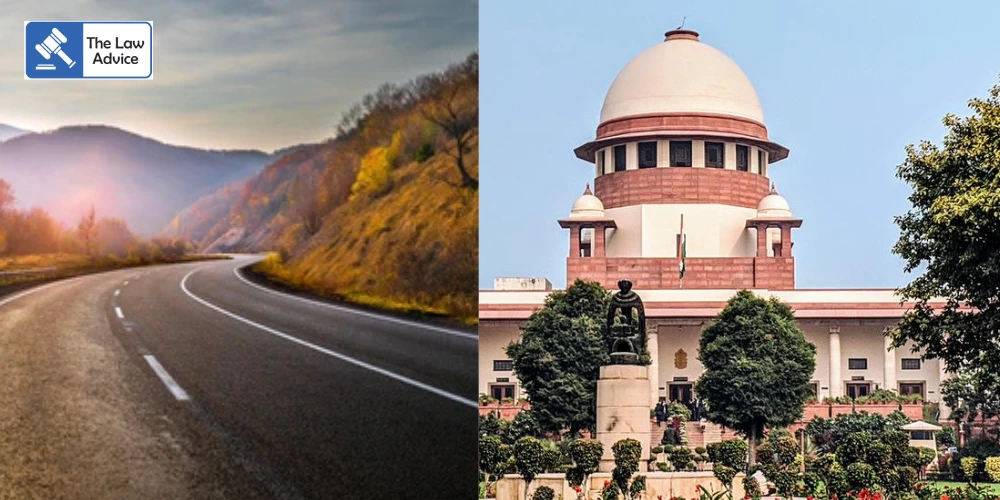
The Supreme Court has praised the remarkable overhaul of India’s road transport system, observing that the country has made “genuine and focused efforts to reshape travel” and achieved a “significant leap” in infrastructure development in recent decades.
The Court noted that there is no denying the extensive improvements in the national transport network.
Reflecting on the sector’s evolution, the Bench observed that India has come a long way from its “modest origins” and now possesses an elaborate highway network connecting even remote rural settlements to nearby towns and urban centers, thereby ensuring true “last-mile connectivity.”
The Court observed that the construction of modern highways and expressways has changed the face of national mobility, speeding up the movement of people and goods across large distances and considerably reducing travel duration.
The Bench also highlighted that contemporary expressway surfaces are “far smoother than in earlier times,” and that stage carriage operators today offer levels of comfort and convenience “comparable to services in developed countries.” Further, it appreciated the growing shift toward electric mobility, noting that the move to e-vehicles supports “environmentally responsible and sustainable transportation.”
Another defining feature of this progress, the Court said, is technological integration. “Smart mobility systems — incorporating technology to improve efficiency and safety — have taken center stage. With ongoing innovation and continued investment, the transport sector appears to be advancing towards greater sustainability, inclusivity and operational efficiency,” the judgment recorded.
Examining data from various State Road Transport Corporations (SRTCs), the Court noted that several have shown “noteworthy growth” and have “embraced technology effectively.” The digital shift, it said, has been transformative — allowing online ticketing, real-time bus tracking through mobile apps, and better customer service.
Even though older buses are still in use in certain regions, the Court acknowledged that “new-generation vehicles such as electric buses have already been deployed on specific routes.”
The Bench emphasized, however, that despite rapid development, “the welfare of passengers and everyday commuters must remain the foremost priority of transport authorities.”
The observations were made by a Bench of Justice Dipankar Datta and Justice A.G. Masih while resolving a dispute involving UPSRTC, MP SRTC and private bus operators. The Court held that private operators cannot operate on an inter-state route that has been exclusively earmarked for a State Road Transport Corporation.
In its concluding remarks, the Court stated:
“Reviewing the evolution of road transport in India, one cannot overlook the major transformation that has occurred over the years. Earnest and determined initiatives to enhance the travel experience are visible. From modest beginnings, the emphasis on infrastructure has experienced a substantial rise. India has, in recent times, created a detailed network of highways ensuring connectivity between distant urban centers and remote villages, establishing reliable last-mile access. The introduction of expressways has enabled quicker travel for both passengers and freight, thereby reducing journey hours and spurring economic expansion. Notable among these advancements is the significantly improved quality of road surfaces. Modern vehicles and bus services now offer comfort comparable to international standards. The transition to electric mobility has promoted environmentally viable transport. Smart transportation has incorporated technology to increase safety and efficiency. Overall, with ongoing innovation, the sector is moving towards greater sustainability, efficiency and accessibility.
Data from several SRTCs indicates that some corporations are performing well, adopting modern systems and scaling their services. Digital platforms now allow online reservations and live vehicle tracking. While older buses still run on certain routes, many corporations have introduced electric buses on selected paths.
Having witnessed substantial development in this sector, it is imperative that passenger and commuter interests remain central to all administrative decisions.
Cause Title: U.P. State Road Transport Corporation v. Kashmiri Lal Batra & Others
Website designed, developed and maintained by webexy